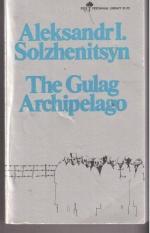|
This section contains 527 words (approx. 2 pages at 400 words per page) |

|
Part 2, Chapter 2 Summary and Analysis
An enormous map of the USSR shows provincial capitals, railroad junctions, river routes, and countless flyspecks representing "The Ports of the Archipelago." Few zeks do not know 35 transit prisons and camps; many remember a dozen. True "sons of Gulag" can name 50. They blend together however, in illiteracy, ineptitude, waiting, body searches, unsanitary conditions, mold, crowding, dampness, and gruel that seems made of silage. Anyone with a sharp memory can distinguish them: Novosibirsk has strong barracks; Irkutsk has bricked-over windows; Vologda is ancient with leaking toilets; and Usman is lice-ridden. Every city and town has a transit prison or functional equivalent.
After being squashed into Stolypins, prisoners dream of resting and loosening up in transit prisons, going to the toilet leisurely, drinking water and hot tea, not having to ransom belongings to get rations, eating hot food, showering, and no...
(read more from the Part 2, Chapter 2 Summary)
|
This section contains 527 words (approx. 2 pages at 400 words per page) |

|




